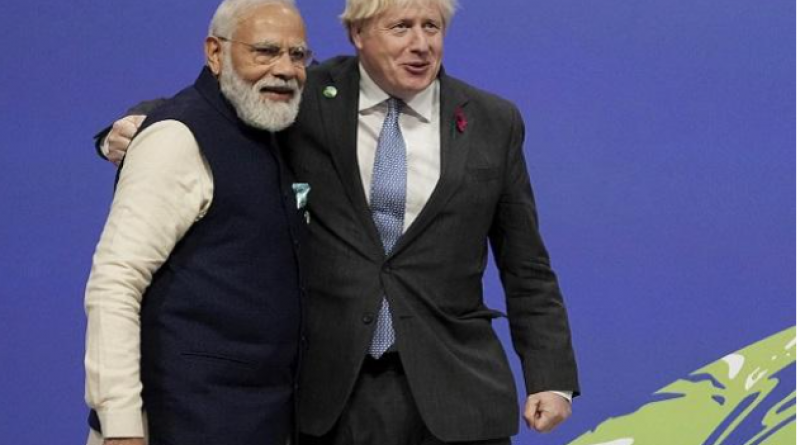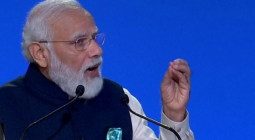India signs up to UK's Breakthrough Agenda on affordable, clean tech

Modi is among 40 leaders to sign up to the UK's Glasgow Breakthroughs
Prime Minister Narendra Modi is among 40 leaders to back and sign up to the UK's Glasgow Breakthroughs, an international plan to deliver clean and affordable technology everywhere by 2030, launched at the COP26 climate summit here on Tuesday.
India joins the US, European Union, China, among others representing more than 70 per cent of the world's economy and every region, to sign up to the agenda.
Modelled on the UK's landmark Net Zero Strategy, the Breakthrough Agenda will see countries and businesses coordinate and strengthen their climate action each year to dramatically scale and speed up the development and deployment of clean technologies and drive down costs this decade.
By making clean technology the most affordable, accessible and attractive choice, the default go-to in what are currently the most polluting sectors, we can cut emissions right around the world, said British Prime Minister Boris Johnson.
The Glasgow Breakthroughs will turbocharge this forward, so that by 2030 clean technologies can be enjoyed everywhere, not only reducing emissions but also creating more jobs and greater prosperity, he said.
The aim is to make clean technologies the most affordable, accessible and attractive choice for all globally in each of the most polluting sectors by 2030, particularly supporting the developing world to access the innovation and tools needed to transition to net zero.
Prime Minister Johnson is setting out the first five goals, the Glasgow Breakthroughs, collectively covering more than 50 per cent of global emissions:
Power: Clean power is the most affordable and reliable option for all countries to meet their power needs efficiently by 2030.
Road Transport: Zero emission vehicles are the new normal and accessible, affordable, and sustainable in all regions by 2030.
Steel: Near-zero emission steel is the preferred choice in global markets, with efficient use and near-zero emission steel production established and growing in every region by 2030.
Hydrogen: Affordable renewable and low carbon hydrogen is globally available by 2030.
Agriculture: Climate-resilient, sustainable agriculture is the most attractive and widely adopted option for farmers everywhere by 2030.
The plan will see countries and businesses work closely through a range of leading international initiatives to accelerate innovation and scale up green industries this includes, for example, stimulating green investment through strong signals to industry about the future economy, aligning policies and standards, joining up R&D efforts, coordinating public investments and mobilising private finance particularly for developing nations.
Delivering the first five breakthroughs could create 20 million new jobs globally and add over USD 16 trillion across both emerging and advanced economies.
The UK says Glasgow Breakthroughs will drive forward global progress to halving emissions by 2030, which is crucial to keeping the limit to temperatures rises to 1.5C within reach, and will support the UK Presidency's key aims to secure global action on phasing out coal and accelerating the transition to electric vehicles.
Leaders will also commit to discuss global progress every year in each sector starting in 2022 supported by annual reports led by the International Energy Agency in collaboration with the International Renewable Energy Agency and UN High Level Champions with annual discussions of Ministers across government convened around the Mission Innovation and Clean Energy Ministerials.
This Global Checkpoint Process' will seek to sustain and continually strengthen international cooperation across the agenda throughout this decade.
(Only the headline and picture of this report may have been reworked by the Business Standard staff; the rest of the content is auto-generated from a syndicated feed.)
2 November 2021
Business Standard




